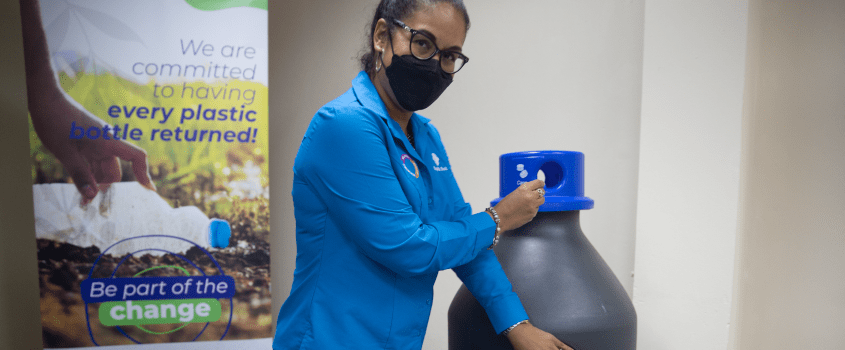republic onboarding
Internet Banking
-
Savings & Chequing
-
Savings Accounts
Growing up with a plan for tomorrow
For youths between the ages 13 to 19 years
Shape your future
Helps you to build your nest egg
Saves you time and money
The wise investment instrument
Earn more on your Foreign Accounts
Chequing Accounts
Bank FREE, easy and convenient
A world of convenience and flexibity
Invest and enjoy the best of both worlds
A value package designed for persons 60 +
Life Stage Packages
Banking on your terms
Getting married?
Tools & Guides
Make an informed decision using our calculators
Help choose the account that’s right for you
All Our Cheques Have A New Look!
-
-
Electronic Banking
-
EBS Products
Open a deposit account online
Pay bills and manage your accounts easily
Banking on the Go!
Welcome to the Cashless Experience
Top up your phone/friend’s phone or pay utility bills for FREE!
EBS Products
Make secure deposits and bill payments
Access your accounts easily and securely with the convenience of Chip and PIN technology and contactless transactions.
Access cash and manage your money
Where your change adds up
-
-
Credit cards
-
Credit Cards
Credit Cards
Additional Information
-
-
Prepaid Cards
-
Pre-paid Cards
-
-
Loans
-
overview
To take you through each stage of life, as we aim to assist you with the funds you need for the things you want to do
We make it easy to acquire financial assistance for tertiary education through the Higher Education Loan Programme
We make it easy, quick and affordable to buy the car of your dreams
Tools & Guides
Helps you determine the loan amount that you can afford
You can calculate your business’ potential borrowing repayments
Republic Bank's Group Life Insurance will provide relief to your family by repaying your outstanding mortgage, retail or credit card balance in the event of death or disablement.
-
-
Mortgages
-
Mortgage Centre
Republic Bank Limited can make your dream of a new home a quick and affordable reality
New Customers
Block for MM- new user mortgage process
There are three stages you must complete before owning your first home
Tools & Guides
block for MM - personal - mortgages
-
-
Investments
-
Investment Products
-
Sustainability in Banking: Why is it important to Republic Bank?
You are here
Home / Sustainability in Banking: Why is it important to Republic Bank?
Eco-friendly, sustainable, green - these are all words we’re familiar with but most likely never attribute to the banking sector, at least not in the first instance. It’s true. Over time we’ve somehow managed to ascribe caring for the environment and ensuring the responsible use of resources to specific industries like agriculture and energy. However, if we’re honest, the responsibility of minimising the effects of climate change and protecting our environment is one that falls on all industries, governments, non-governmental organisations and individuals. Banks have a particularly integral role to play as they are the largest source of funding for corporations, whether eco-friendly or otherwise.
We at the Republic Group saw it necessary to formally commit to working on ensuring a sustainable future for our Caribbean region. We then made our commitments public by becoming a signatory to the UN’s Principles for Responsible Banking (PRB) and the Net-Zero Banking Alliance, while pledging to lend and invest US$200 million by 2025 to support actions that would help achieve major Climate Finance Goals. We’ve also dedicated our time, effort, and resources to begin the process of revising our operations and even our corporate social responsibility programme, the Power to Make a Difference, to become a more sustainable bank.
In Trinidad and Tobago, the Power to Make a Difference programme made a notable shift in the past year toward greener and more sustainable partnerships with a targeted focus on Sustainable Development Goals identified from our PRB commitment. These being SDG 7-Affordable and Clean Energy, SDG 9-Industry, Innovation and Infrastructure and SDG 13-Climate Action. We’ve been able to work alongside partners championing the cause of sustainability and a better future for all.
In May 2022, we partnered with Caribbean Bottlers Trinidad and Tobago (Coca-Cola) and Blue Waters Products Limited to embark on the Every Bottle Back pilot project where over 200 eco-bins were placed around Port of Spain and at other feasible locations, including our branches and units, to encourage the collection of plastic bottles to be exported and recycled. Since the commencement in May, the project has been a resounding success, with over 350,000 bottles collected as at the end of August. That’s almost 14,000 pounds! The pilot programme continues for a year with the goal of establishing a plastic bottle recycling plant in Trinidad in the future. This would help achieve both SDG 9 and 13.
On the business side of things, we are providing lending and investments that enable the sale of electric and hybrid cars, loans that are aligned to the promotion of clean fuels, renewable energy and technology and that contribute to an improvement in energy efficiency, as well as construction loans that deploy climate-resilient technologies, to name a few. In addition to this commitment, we also made some major internal strides in reducing our carbon footprint by transitioning to digital statements instead of printed statements for our retail customers.
Though just a few examples were discussed above, these are just a few ways banks as key societal actors can do their part in preserving the environment, combating climate change and ensuring the sustainable use of resources. What’s of even greater importance is the role that we all can play as individuals, doing our part in making the world a much better place for future generations.
COMPANY INFORMATION
Banking Segments
Press & Media
Contact Us
© 2026 Republic Bank Limited. All Rights reserved.







 Karen Tom Yew
Karen Tom Yew
